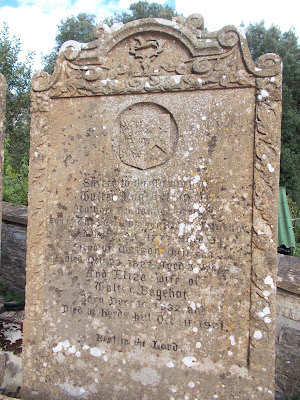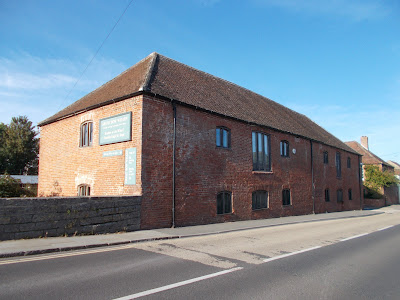Walter Bagehot was born in Langport on 3rd February 1826. He became an economist and political analyst and he was one of the most influential journalists in the mid-Victorian period. His parents were Thomas Watson Bagehot and Edith Stuckey. Several generations of Walter's father's family had been general merchants and his mother's uncle, Vincent Stuckey, was in charge of the largest bank in the West of England.
He attended Langport Grammar School and at the age of 13 he was sent to Bristol College. There he learnt about mathematics, philosophy, literature, natural sciences and the classics. He then attended University College London. While there he made several long-term friends, including the poet Arthur Hugh Clough, Richard Holt Hutton (who later became the editor of The Spectator), lawyer and diarist Henry Crabb Robinson and the poet Samuel Taylor Coleridge. He graduated with first class honours in 1846 and was awarded a masters degree in 1848, along with the university's gold medal in moral and intellectual philosophy.
Walter then studied law for 3 years but didn't like it. He was in Paris in 1851 at the time of Louis Napoleon's coup d'etat and wrote a supportive article about it. This convinced him that he could write and he produced many literary essays, studies of leading political figures and articles about economics while working for Stuckey's Bank. These were noticed by James Wilson, who was an MP, financial secretary to the treasury in Lord Palmerston and founder of The Economist magazine. He got to know James Wilson's eldest daughter Eliza and he married her in April 1858. After their marriage they lived near Clevedon and later in London. They had no children.
By 1860 Walter was manager of the Bristol branch of Stuckey's Bank. During this year James Wilson died in India and Walter gained control of The Economist. For the next 17 years he wrote the main article every week for the magazine and transformed it into one of the world's most important financial and political publications.
Walter Bagehot described himself as a conservative liberal. He believed that rapid urbanisation and industrialisation were creating social problems in Britain. He also took a great interest in international affairs. In 1867 he published a book entitled The English Constitution. In it he examined how the British government really operated and in whose hands true power was held. He was one of the first people to observe the power of the Cabinet. He was friends with both the Liberal William Ewart Gladstone and the Conservative Lord Carnarvon. He tried unsuccessfully to get elected as an MP for Manchester, Bridgwater and London University (he was a poor public speaker).
In 1873 Walter Bagehot published Lombard Street. This publication argued for a larger central reserve to be controlled by the Bank of England. However, it also contained the beginnings of the modern theory of central banking and exchange control.
Walter Bagehot's health began to worsen in the 1870s. He suffered from recurrent respiratory infections and migraines and his vision and heart began to fail. On 24th March 1877 he died of a lung infection while visiting his father at Herd's Hill near Curry Rivel. He was buried in the family grave at All Saints' Church in Langport.










